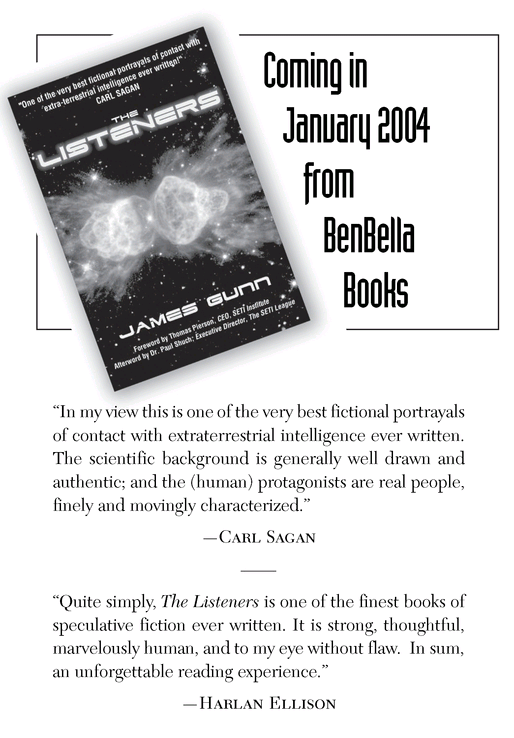The Man Who Folded Himself (26 page)
Read The Man Who Folded Himself Online
Authors: David Gerrold

When Dan puts on the timebelt, it is as if he acquires the power to cut himself out of the timestream, out of the text of human history, and paste his momentary self into another point in time in a hitherto identical universe. Simple enough, until you realize that the process can be iterated, without end. The process is what mathematicians call recursion. You apply a rule or process to a product of that same rule or process, over and over.
From the point of view of our mischievous deity, the result is a dizzyingly complex structure of possible histories of the universe, branching out, spiralling, looping back. No individual gets to see the whole structure. From any given point, certain histories are accessible, others inaccessible. Tragically, for Dan, worlds that were once accessible cease to be accessible. A timebelt does not give you the power to turn back the clock of your own life.

What kind of thing must time be, if all this is possible? What kind of thing is a person or âI' that can move from one world, one history of the universe to another, miraculously preserving the invisible thread of self-identity?
I don't know what kind of thing time would be in a time travel universe, because I don't know what time
is
. I don't understand where the past goes. I don't know how to define what makes
now
different from all other ânows.' Dan's story is intriguing, gripping, but the reason is not merely because time travel is an exotic idea. “What is time?” is a mind-boggling question. So is the question, “What is âI'?”
is
. I don't understand where the past goes. I don't know how to define what makes
now
different from all other ânows.' Dan's story is intriguing, gripping, but the reason is not merely because time travel is an exotic idea. “What is time?” is a mind-boggling question. So is the question, “What is âI'?”
There is one point in the novel where Dan, or rather a version of Dan, succumbs to paranoid schizophrenia. Dan's first thought is, “If there are an infinite number of Dans, then each one thinks he is choosing his own course. But that isn't so. Each one is only playing out his preordained instructionsâexcising, altering, and designing his timestream to fit his psychological template and following his emotional programming to its illogical extreme.” But then later, “It bothers meâthis me. I need to know that there is some important reason for my existence. There must be something special about me.” There is such a reason, Dan finally realizes as he slips into madness: “I am God.”
Like the problem of time, the nature of “I” is a problem for us in the actual world, not just for Dan in the world of the novel. What makes the problem so acute for Dan is that there are so many versions of Dan around. But that is a point of mere detail. Each of us, when we say “I” and point to ourselves, realize that all our physical and mental qualities put together are not enough to make me “I.” An exact copy of me, thought for thought, molecule for molecule, would not be “I.” Then what is sufficient to make me “I”? What is the extra ingredient for individuality? I don't know any thinker who has given a satisfactory answer to that question.
I would like to thank Steven Ravett Brown, Tom Farrow, Hubertus Fremerey, Rune Froseth, Adriano Lima and Kenneth Stern who responded helpfully to questions about time travel which I posted on the Pathways web site.
Â
Geoffrey Klempner
Further Reading
If interested in exploring further the themes discussed in the Afterword should consult the following:
Â
Aristotle.
De Interpretatione
. E.M. Edghill trans. (In Gale pp. 179â182).
De Interpretatione
. E.M. Edghill trans. (In Gale pp. 179â182).
Descartes.
Meditations on First Philosophy
. 1641 (several editions). Gale, R. ed.
The Philosophy of Time
. Macmillan 1968.
Meditations on First Philosophy
. 1641 (several editions). Gale, R. ed.
The Philosophy of Time
. Macmillan 1968.
Le Poidevin, R. and MacBeath, M. eds.
The Philosophy of Time Travel
. Oxford University Press 1993.
The Philosophy of Time Travel
. Oxford University Press 1993.
Lewis, D. “The Paradoxes of Time Travel”. (In Le Poidevin pp. 134-146)
Wells, H.G.
The Time Machine
. 1895 (downloadable e-text)
The Time Machine
. 1895 (downloadable e-text)
Wittgenstein, L.
Tractatus Logico-Philosophicus
Pears, D.F. and McGuinness, B.F. trans. Routledge 1961.
Tractatus Logico-Philosophicus
Pears, D.F. and McGuinness, B.F. trans. Routledge 1961.



This book is a work of fiction. Names, characters, places and incidents are the product of the author's imagination and are used fictitiously. Any resemblance to actual events, locales or persons, living or dead, is coincidental.
Â
First BenBella Books Edition July 2003
Â
Copyright © 1972 by David Gerrold Revisions Copyright © 2003 by David GerroldÂ
All rights reserved. No part of this book may be used or reproduced in any manner whatsoever without written permission except in the case of brief quotations embodied in critical articles or reviews.

Â
Â
Library of Congress Cataloging-in-Publication Data
Â
Gerrold, David, 1944-
The man who folded himself / David Gerrold.â1st BenBella Books ed. p. cm.
eISBN : 978-1-935-61872-0
1. Time travelâFiction. I. Title.
Â
PS3557.E69M34 2003
813'.54âdc21
2002154554
Â
Â
Other books
First Born by Tricia Zoeller
Captured Innocence (CSA Case Files) by Kennedy Layne
Sherlock Holmes and The Adventure of the Ruby Elephants by Christopher James
Net of Lies by Wolf, Ellen
Look Always Forward (Bellingwood Book 11) by Diane Greenwood Muir
Forest Mage by Robin Hobb
No Sanctuary by Laymon, Richard
Her Rancher Bodyguard by Brenda Minton
Liberty At Last (The Liberty Series) by James, Leigh
Crimson Debt: Book 1 in the Born to Darkness series by Evangeline Anderson